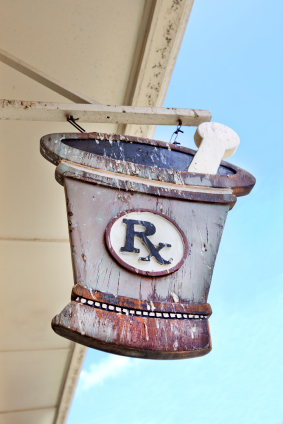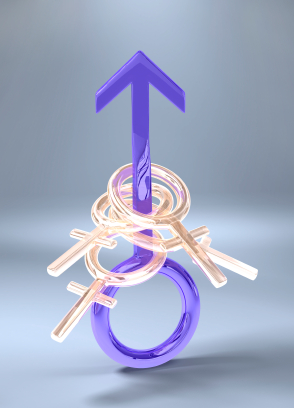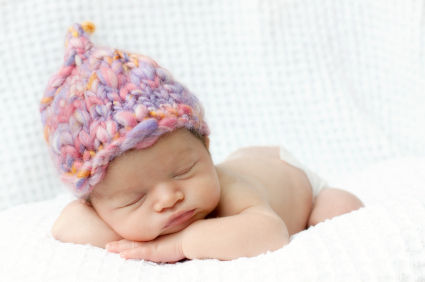Bioidentical hormones for menopause: what’s the latest?
It’s been some time since I covered the topic of bioidentical hormones. And with the lastest review of the Women’s Health Initiative data and yet another push in favour of hormone replacement therapy (HRT), I thought that an update was in order, particularly because the naysayers continue to emphasize that HRT is the end all to be all and that there are not evidence-based alternatives.
Think again.
For those of you who need a refresher in bioidenticals, they are hormones that are molecularly similar to those produced naturally by the body. HRT is manufactured and consequently, has been shown to alter how cell receptor bind to these hormones and function. Bioidentical hormones are often compounded in specialized pharmacies, i.e., they are individualized as directed by a health professional to the exact dosage and regimen required, based on a woman’s personal symptoms, hormone levels, and preference. Yet, claims that they are safer and equally effective alternatives have been challenged, namely due to the lack of scientifically sound data.
At last, that challenge is beginning to change, as more and more women turn away from HRT. In a recent study published in the open access journal BMC Women’s Health, researchers observed 296 menopausal women receiving compounded bioidenticals from six community pharmacies over a period of 7 years.The majority of women in the study were an average of 52 years old, in good health, and of moderate to average rate; most had not used HRT before. Although various compounded forms of bioidenticals were used in the study, the majority were topical, followed by oral, vaginal and under the tongue (sublingual). Moreover, all women were started at low doses of either progesterone as a single therapy or in combination with estrogen and then adjusted accordingly.
Overall and within three to six months after starting therapy, women reported significant improvements in their mood, including at least a 25% reduction in mood swings, irritability and anxiety. They also reported improvements in night sweats and hot flashes. Moreover, women who started on progesterone only therapy had much greater reductions in their mood symptoms compared to women who started on combination therapy.
Bioidentical hormone therapy also proved to be safe, with no woman experiencing a heart attack or developing breast cancer, although importantly, longer follow up times are needed before safety can be firmly established.
So, what are the drawbacks here? First, this was an observational study and undoubtedly, by relying on women to self report symptoms, there’s always room for bias. Still, this is the first well designed trial looking at compounded bioidentical hormones as opposed to manufactured formulations. And, while significant improvements were seen in mood symptoms, the verdict is still out with regards to vasomotor symptoms, i.e. night sweats and hot flashes.
Like any therapy, hormone or alternative, speak to a health practitioner first. Make choices based on information, not simply advice. Right now? Compounded bioidentical hormones appear to offer an advantage over HRT but more study is needed. Clearly, they may not offer the same benefits in terms of flashes but again, more research is needed.
I like the fact that scientists are starting to pay attention. You?
Read MoreIt’s not okay. A Friday post on a Thursday evening
I tend to stay away from politics on Flashfree unless it directly affects women’s health; hence Wednesday post about Senator Nina Turner’s Viagra Bill. Yet, I caught the image below in my Facebook stream today and it truly disturbed me. There seems to be a trend in our country where decorum has been thrown out the window, bad behavior is acceptable and racism, ageism and genderism (is that an ‘ism?) are back in full force. And okay.
Guess what? It’s not okay.
When I was growing up, if we cursed in my home, we got our mouths washed out with soap. I grew up with generations of strong women, including my mother, and was taught at an early age to be assertive, stand up for myself and be smart when it came to business and to women’s rights. This was the 60s and 70s. And yet, here we are in 2012 and women’s health rights are under attack, it’s not acceptable to speak another language in a country that was once almost completely made up of immigrants and rude and disrespect in politics is the norm, not the exception (remember Joe Wilson ‘you lie?’).
I recall being in Washington Square Park on September 11, 2001 and meeting with friends to mourn what had happened in our City. One of us happened to be an Egyptian from Canada who was also a Christian and a professor at NYU. And yet, he was stopped three times before meeting us.
Three times.
We appear to be at a crossroads in our country, where ‘either you are with us or you are against us’ truly resonates. The truth is, it appears that if you are not a white, Christian male, you. are. not.
But this, this here?
I am appalled.
Frankly, I don’t give a flying ‘you know what’ side of the aisle you vote on or if you are a Tea Partyer who believes that the world is made up of black and white and white always prevails. But this, below, is NOT okay. And this is not what my ancestors, Jews from way back in Russia and Austria who long faced anti-semitism and other challenges, fought to achieve for so many decades. My grandfather, an attorney in Long Beach, NY, donated his time to multiple causes, including civil rights, most likely because he knew first-hand what prejudice was about.
I’m not interested in returning to the days of ‘a woman’s place is in the home while pregnant and barefoot’ anymore than I am willing to delegate my friends of colour to a different status. I don’t believe that love is defined by gender and I don’t ascribe to the viewpoint that if you don’t believe that Jesus is a savoir, then you are relegated to hell. Life? It’s a free for all.
“Don’t “re-nig” in 2012.”
This is NOT okay. Period. End of story.
Want to know what health is? Health, as defined by the World Health Organization, is “a state of complete physical, mental and social wellbeing and not merely the absence of disease or infirmity.”
Right now? We are on the brink of a social crisis and our nation’s health is being threatened – – by ignorance, hatred, anti-women, anti-Jew/immigrant/black/hispanic/asian jerks who only believe that they are right and everyone else is wrong.
You may not like Obama or his policies (hell, I don’t). But It’s time to wake up.
The last time I checked, this battle had been fought already. Evidently, there are a lot of people out there who are drawing the lines again.
I like to colour outside the lines.
What about you?
Read More
Wednesday Bubble: Viagra bill?
With the latest attack on women’s reproductive freedoms coming from conservative male politicians, Ohio State Senator Nina Turner decided to fire back…with her own bill: The Viagra Bill, AKA Bill 307.
According to Senator Turner, who appeared on MSNBC this week, this bill is focused on showing “men [as much] love in the reproductive health arena as they have shown us over the years…and making sure that we look out for men’s sexual health.” Turner claims that the bill, which would require men seeking a prescription for erectile dysfunction to first discuss the problem thoroughly with their physician to determine whether the underlying problem is medical or ‘mental,’ and then follow up with a sex therapist before receiving a prescription. She adds that “we have to make sure we guide men to make the right decision that maybe these drugs may not be the best decision for them to make. Celibacy is always na option or natural remedies.” However, Turner also makes it clear that this is about setting and leveling the playing field. The full copy of Bill 307 can be found here.
I’ve got to hand it to the senator; she is certainly hitting those male policymakers who want to control abortion and contraception (and attacking single mothers to boot) where it hurts most – their groins. And she’s not alone. Turner is among a few female state senators in the nation who are fighting the attack on women’s rights with sarcasm, joining OK Senator Constance Johnson and her ‘Every Sperm is Sacred’ amendment and VA Senator Janet Howell’s amendment requiring men seeking erectile dysfunction prescriptions to first undergo digital rectal examinations and cardiac stress testing.
If anything, these bills provide fodder for the argument for gender equality, and particularly, women’s health rights. Regardless of which side of the aisle you reside, you’ve got to admit that we’ve reached the point of absurdity. With a tanking economy, millions out of work and continuing foreclosures, is reproduction truly a priority?
What do you think? Sometimes humour hits the hardest. Below the belt? It really can sting.
Read More
When was the last time you slept
…like a baby?
Yawning again? It’s not daylight savings time, promise! In fact, it may very well be your mood, at least in part.
I’ve been writing about sleep (or lack thereof) and menopause since first starting this blog in 2008. Click on the link and you’ll see posts about causes, solutions, pillows, sheets, you name it. And yet, I wouldn’t be surprised if sleep eludes you from time to time as much as it does me. More importantly, I imagine that some of you in the Flashfree universe don’t sleep much at all.
What gives?
Anxiety. And depression. That’s what. At least according to new data appearing in the online version of Maturitas journal. This time, researchers in search of some answers about sleep difficulties in midlife examined medical records of 237 women in peri- and postmenopause, all of who were on average, 52 years old. More specifically, they delved into answer that the women had provided to previous questionnaires about their life quality (based on physical and mental health, life satisfaction and social involvement) and degree of anxiety and/or depression. Within these questionnaires were measures of menopause-specific symptoms as well as sleep issues, including difficulty falling asleep and sleep that was non-restorative.
Overall, and unsurprisingly, about 36% of the women expressed difficulty falling asleep and 44% nonrestorative sleep during at least half the week. Almost a third experienced both issues at least 3 nights a week. Yet, sleep difficulties were less associated with menopausal symptoms (night sweats, hot flashes, nausea, dizziness, muscle/joint pain, headaches) and rather, with psychological statse of being. Indeed, trouble falling asleep seemed to be mostly correlated with anxiety, while non-restorative sleep was linked to depression.
This is not the first time that researchers have linked mood disorders to sleep issues. And although the progression is not entirely clear, i.e. the time course over which depression and anxiety develop during the transition to influence sleep, what is clear is that treating the underlying issues may ultimately help improve sleep quality.
What about you? Do you find that feeling blue or anxious tends to rob you of much needed zzzs? Or are you more convinced that waking up drenched in sweat is what is messing with obtaining restorative sleep?
Inquiring minds…
Read MoreTears dry? Dry mouth? Chapped lips? Must be the ‘pause
A friend recently asked if I had run across any research papers linking chapped lips to menopause. Although I’ve not seen that direct association, I can tell you menopause is linked with dry mouth as well as burning mouth syndrome, i.e. burning in the tongue or oral mucous membranes and taste alterations.
In so far as dry mouth and burning mouth syndrome go, the tissues in the mouth and the salivary glands both contain estrogen receptors. Consequently, hormone fluctuations, like those associated with menopause, can affect the mouth, lips, tongue and even lead to periodontal disease. The rub is that although researchers are aware of this, the data are pretty scarce, although studies have shown that saliva, which by the way, is the primary defense against oral disease, is more productive in premenopausal compared to postmenopausal women. Moreover, it appears that psychological stress can also influence saliva flow, since it affects the nervous system. In some ways, it’s similar to an endless loop: oral discomfort relating to dry or burning mouth can lead to unpleasant sensations and anxiety, which then activates the autonomic nervous system and further reduces saliva.
Although there is not cure for either issue, there have been small but inconclusive studies indicating that hormone replacement may help. Dry mouth can be counterbalanced by drinking at least 1 to 1.5 liters of water or other liquid daily, or using commercial mouthwashes especially formulated for dry mouth. For burning mouth syndrome, there are commercially available gels and ointments, and some practitioners recommend rubbing olive or other vegetable oil to the oral tissues. Short of that, severe cases may benefit from antidepressants or probiotic products. For chapped lips? Personally, I am pretty hooked on the Pangea Organics line of lips products but I recommend that you use what feels best. Finally? Be sure to maintain your oral health by seeing the dentist regularly. It’s essential!
Read More










